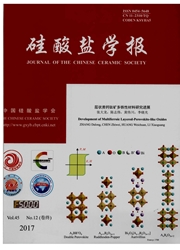

 中文摘要:
中文摘要:
核壳结构复合分子筛具有开放的孔道层次结构、可调变的酸性、高的比表面积、较优的协同效应,可广泛应用于催化吸附、环境工程、生物医药等领域。综述了近年来以介孔MCM–41分子筛为壳层,不同类型的微孔晶粒和介孔晶粒为核的核壳结构复合分子筛的研究进展,分析了影响核壳结构复合介孔分子筛合成的主要影响因素,探讨了不同类型核壳结构复合分子筛的合成技术路线,阐释了合成参数和核壳结构及厚度等之间的关联度,并展望了核壳结构分子筛的发展前景。
 英文摘要:
英文摘要:
Composite molecular sieves of core-shell structure are widely used in catalysis, adsorption, environmental engineering and biological medicine due to their open hierarchical channel structure, adjustable acidity, high specific surface area and superior synergistic effect. Recent development on the composite molecular sieves of core-shell structure with MCM-41 molecular sieve as shell and different types of microporous or mesoporous molecular sieves as core was reviewed. The main factors affecting the synthesis of the core-shell structure of the composite molecular sieves were analyzed. The synthesis routes of the composite molecular sieves were discussed. The relations among the synthetic parameters, the core-shell structure and thickness were explained. Moreover, the further developments of the core-shell structure composite molecular sieves were forecasted.
 同期刊论文项目
同期刊论文项目
 同项目期刊论文
同项目期刊论文
 期刊信息
期刊信息
